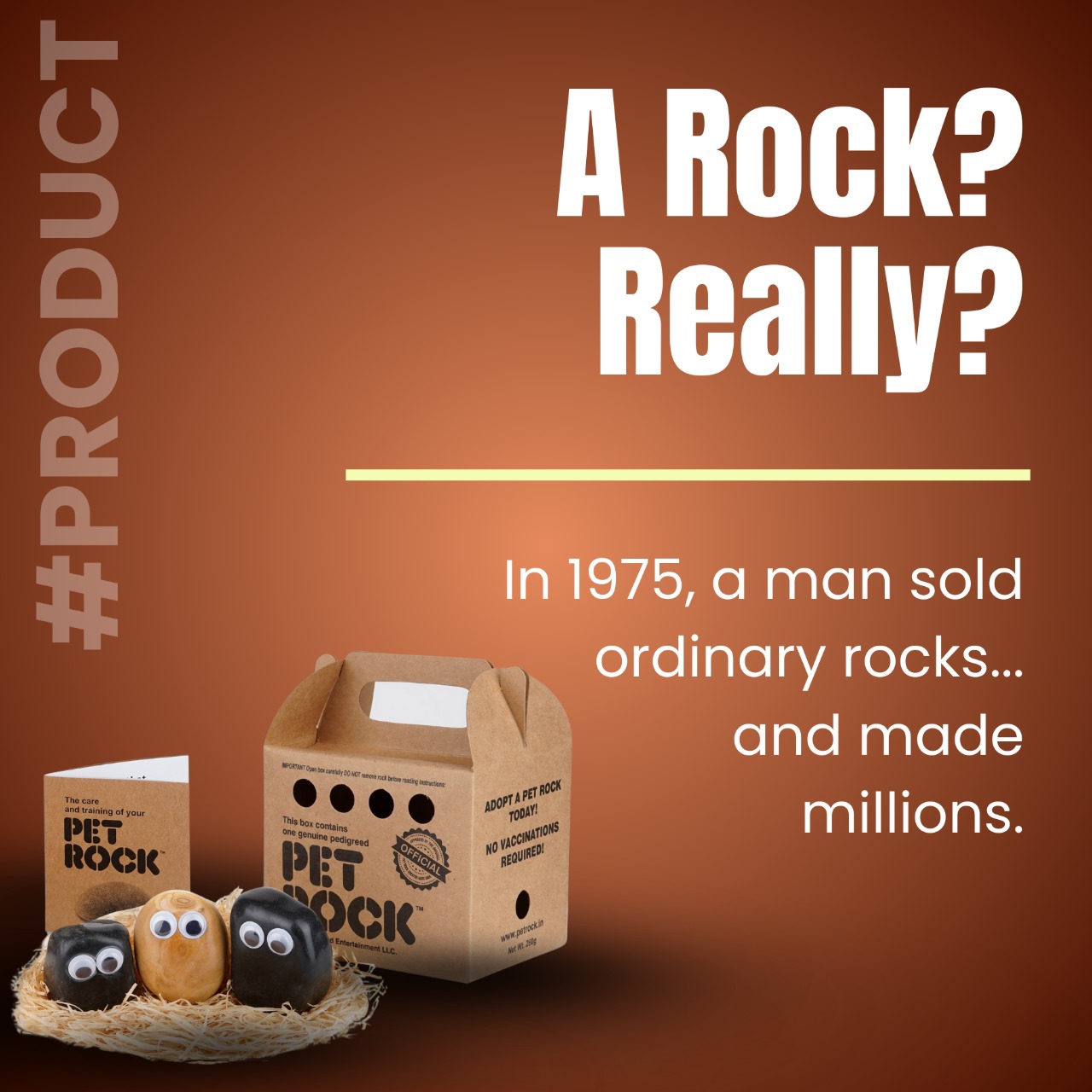Back
The Logo Guy
InkMyStartup | Fishy... • 9m
Can a Joke Make Millions? The Curious Case of the Pet Rock Most of the time, startups and businesses are born to solve real problems—with products that aim to fix pain points, fulfill needs, or create meaningful change. But every now and then, something completely absurd breaks the mold… and makes millions doing it. Enter: the Pet Rock. In 1975, Gary Dahl, an advertising executive, was joking with friends about how difficult it was to care for pets. As a gag, he suggested that the perfect pet would be a rock—it doesn’t need food, walks, grooming, or attention. What began as barroom banter turned into a real product: a smooth rock placed in a pet carrier box, complete with straw bedding and a tongue-in-cheek training manual. Dahl ran with the joke. He packaged the rocks and sold them for $3.95. In just about six months, over 1.5 million Pet Rocks were sold, bringing in nearly $6 million in revenue. It was a cultural sensation—absurd, hilarious, and profitable. Sure, the fad fizzled out quickly in 1976, but the impact was clear: the Pet Rock disrupted the idea of what a "successful product" looks like. It was useless. It was funny. And it worked. So, what does this teach us? Sometimes, what starts as a joke or a playful idea can evolve into a business model that actually works. It doesn’t always have to be serious to make money. Creativity, timing, and clever marketing can turn even the most ridiculous idea into a viral success. Do you think businesses can still create something that starts as a joke—but ends up bringing real money? We’ve seen it happen before. Maybe the next big hit is waiting at the end of a punchline.

More like this
Recommendations from Medial
Avani Patel
I'm cybersecurity en... • 1y
I have an idea about pawsmart. A band can provide many services on one platform. 1. Website provides all details about pet breed. 2. Awareness for pet owner about particular breed habits, food, etc. 3. Pet products like toys and clothes. 4. Pet gro
See More
Anonymous
Hey I am on Medial • 1y
Business idea: Pet Taxi In many families today, there are household pets. Often, their owners need a trip to the vet but can't always manage it on their own. A specialized pet taxi service provides assistance in transporting large dogs and other an
See More
Download the medial app to read full posts, comements and news.











/entrackr/media/post_attachments/wp-content/uploads/2021/08/Accel-1.jpg)





















